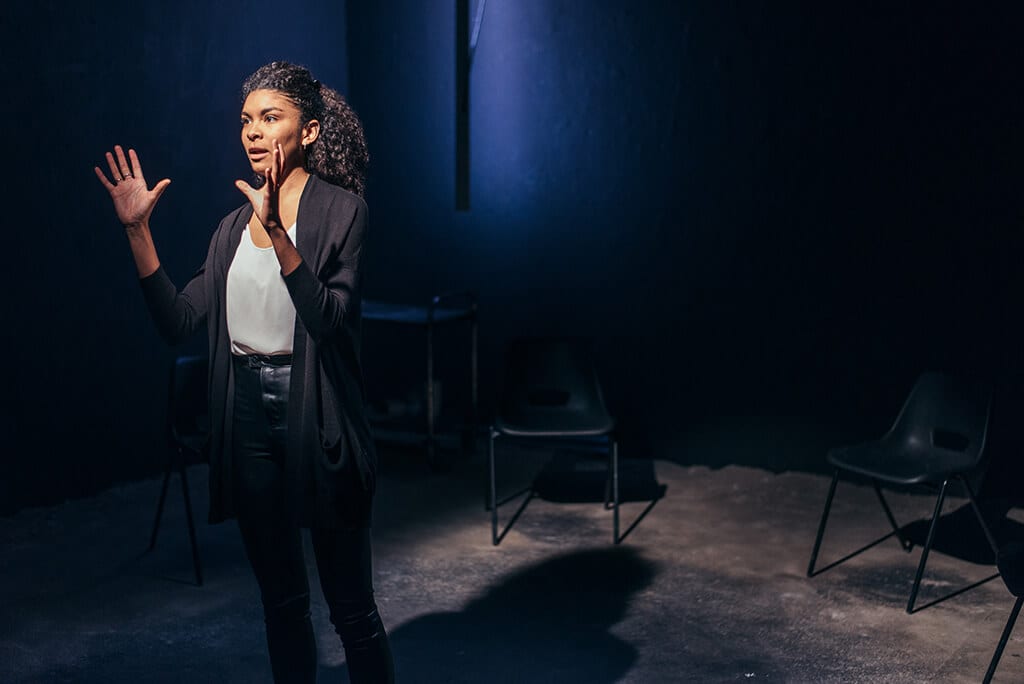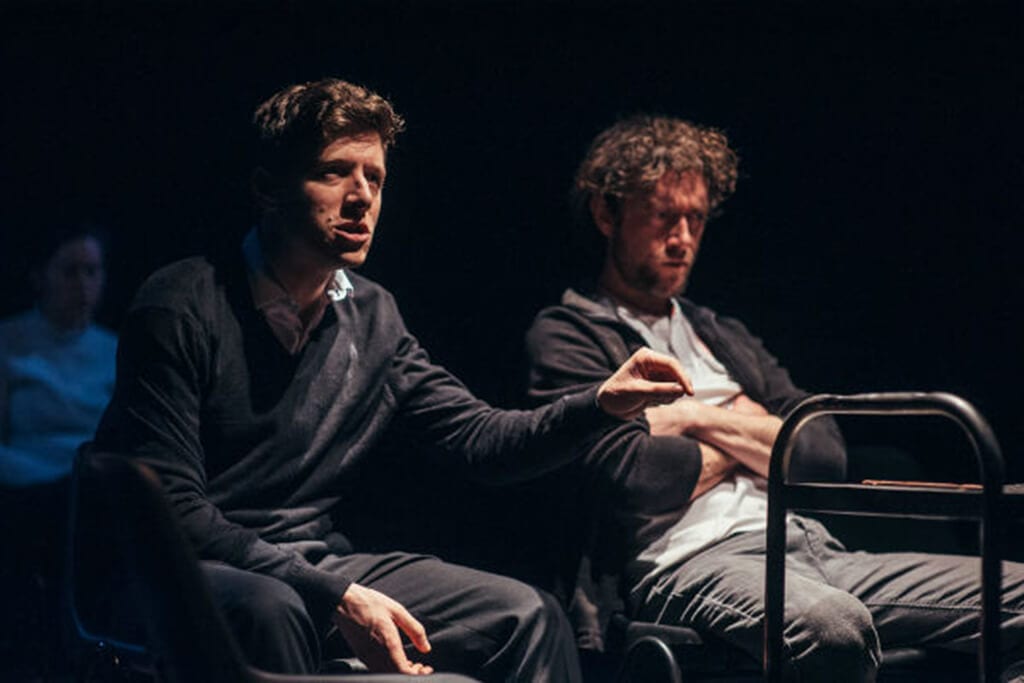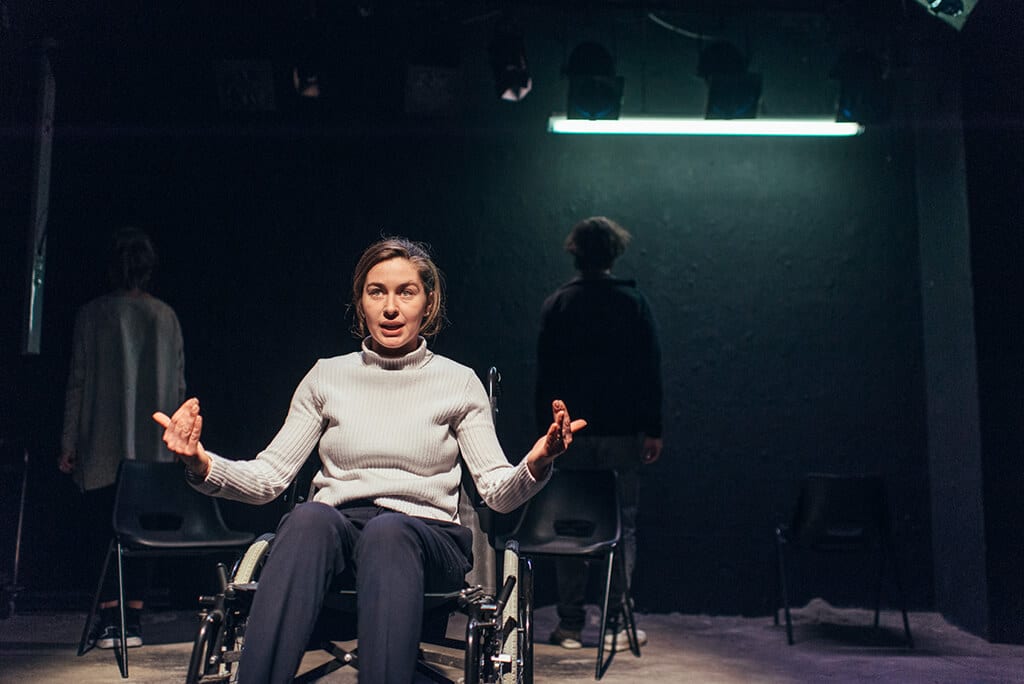BU21 imagines the possibility of a major terrorist attack in London. Terrorists acquire a surface-to-air missile, and from a discrete location in Vauxhall take down a passenger plane travelling from New York to London. It hits the ground in West London, taking out rows of terraced houses in the Parsons Green area, and wreaking havoc and destruction along the New King’s Road.
We meet a series of individuals affected by the crash; people whose very different stories become entwined as they meet through a victim support group. There is Ana, who is wheelchair bound following severe burns; Thalissa, who discovered her mother had been killed via Twitter; Florence, a local resident who witnessed the crash and who is struggling from PTSD as a result.
The play constantly overturns our expectations about characters affected by the crash. It encourages us to believe that Clive is one of the terrorists (largely because of the colour his skin), when in fact he is the son of one of the passengers. We grudgingly acknowledge the causally xenophobic Graham’s heroism as he describes having helped recover bodies from the wreckage – only to discover that he is in fact an opportunistic voyeur who drove to the disaster site and unintentionally became embroiled in the media pageant, providing a platform for his lies. And then there is Alex, the cold hearted banker whose callous disregard, we gradually come to appreciate, is a coping mechanism for dealing with the loss of his best friend and girlfriend (in the process discovering their infidelity) – and whose facade of indifference is exposed as he admits to having made a large donation to the support group.
The play could easily have been a dreary and morbid affair, but its inherent tragedy is offset by the humour and warmth of its characters. They struggle to come to terms with their grief, rather than indulging in it – and the result is a thoughtful meditation on loss that feels devoid of sentiment.
The stand-out thing about this production is the acting. There isn’t a weak link. Alex Forsyth, Clive Keene, Florence Roberts, Graham O’Mara, Roxana Lupu and Thalissa Teixeira are all equally engaging; they each respond to a challenging subject matter in a way that feels both truthful and lucid.
Dan Pick’s direction is unfussy and direct: the whole thing has a punchy immediacy that never lets drop. It feels actor-focussed, and at no point does it give way to sensationalism or cheap emotionalism (which is the norm, with a subject matter like this). Alex Doidge-Green’s design compliments this approach; simple, stark strip lighting.
My one objection was – why land the plane in a district (basically Chelsea) so unrepresentative of a city whose inhabitants are as diverse and largely poor as they are? At one point, one of the characters defends the charge that this should make any difference – which is no doubt true. But whether rightly or wrongly, the setting detracted a bit from my ability to relate what was happening to the London I am (and most people are) familiar with.
I also wasn’t a huge fan of the flying chair dance. Although it reminded me of Stomp (which is my all time favourite).



